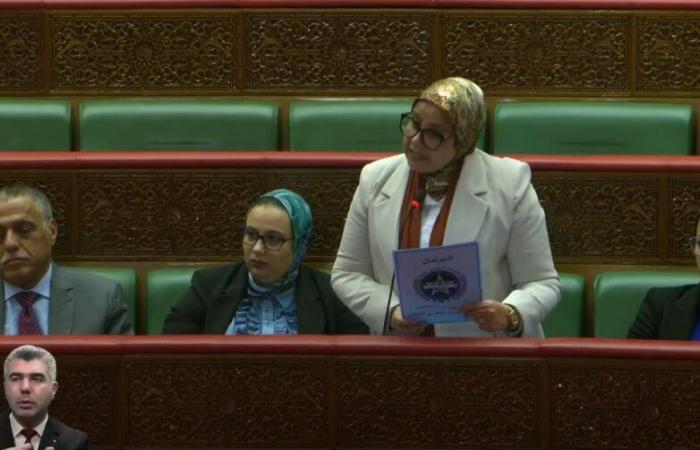
In her speech at the Council of Advisors, Counselor Mina Hamdani, on behalf of the Moroccan Labor Union team, presented observations on the situation of university medical education in the country. In this context, the Chancellor raised legitimate questions regarding the delay witnessed in settling the medical students’ file, stressing the need to take urgent measures to ensure the continuity of the students’ academic achievement, and that the significant delay in resolving this file does not affect their academic future.
During the oral question session on Tuesday, the Chancellor praised the role of the current Minister of Higher Education and the Minister of Health in dealing with this issue, pointing to the challenges presented by the strikes and boycotts led by medical students at the time of the former minister who refused to reach a solution that satisfies the students. She stressed that addressing this file requires a comprehensive settlement that is not limited to agreements with student representatives only, but also includes practical steps to ensure that this delay does not affect the educational year of students whose academic career has been greatly affected.
Hamdani highlighted several problems facing the university medical education sector, which is the main gateway to qualifying the national health sector. Among these problems, she pointed out the weakness of the budget allocated to this sector, which has a negative impact on the quality of the training infrastructure and the efficiency of study programs. She pointed out the need to develop curricula to keep pace with the latest developments in the fields of medicine and pharmacy, while providing more medical specialties.
In the same context, the Chancellor called for the need to take a number of reform measures to ensure improvement of the current situation, including the need to strengthen the budget for medical education, in addition to developing school curricula in a way that is commensurate with and reflects recent developments in the field. She stressed the importance of continuous training of medical education frameworks, by involving professors and specialists in professional programs to keep pace with global challenges. She pointed out the need to enhance international cooperation and exchange scientific and technological expertise to develop this sector.
Hamdani also pointed out the importance of providing modern equipment and various equipment necessary for practical training and relying more on digital technologies and artificial intelligence techniques in the medical field, as well as establishing a national committee to track and evaluate approved programs and procedures, an annual periodic evaluation of the performance of medical educational institutions, and the adoption of national awards to stimulate competencies. scientific in the field.
At the conclusion of her speech, the advisor expressed the hope of the Moroccan Labor Union team that the government would succeed in reforming the health education system, calling for the involvement of all actors in the sector, including professors, administrative frameworks, and students, in formulating real solutions to the challenges facing the health sector.





